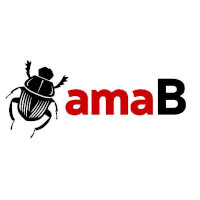Yesterday, the Supreme Court of Appeal (SCA) threw out Steinhoff’s appeal against a high court decision ordering the company to release the full report of a forensic investigation into the massive fraud that pitched Steinhoff into free-fall and eventual liquidation, costing investors more than R200-billion.
In a ringing judgment, the five justices excoriated Steinhoff’s attempts to claim litigation privilege and avoid the implications of the law governing mandatory disclosure in the public interest, at one point describing Steinhoff’s strategy as “untenable”.
In March 2019, PricewaterhouseCoopers (PwC) disclosed the full report – comprising 4000 pages and 3000 pages of annexes – to Steinhoff, but the company’s board took a decision to publicly release only a 14 page summary.
The Financial Mail and amaBhungane requested disclosure of the full report in terms of the Promotion of Access to Information Act (PAIA), but Steinhoff refused.
The company cited as reasons its claim that the document was legally privileged and that the public interest override in PAIA did not apply.
Section 70 of PAIA provides that disclosure is mandatory if the disclosure of the record would reveal evidence of:
a substantial contravention of, or failure to comply with, the law; or
imminent and serious public safety or environmental risk; and
the public interest in the disclosure of the record clearly outweighs the harm contemplated in the provision in question.
The judges held firm that this was exactly such a case.
It is worth quoting Judge Schippers, who penned the judgment, in some detail.
He noted that the PwC summary itself disclosed that the wrongdoers inside Steinhoff had perpetrated irregular transactions and concealed them for nearly a decade, clearly indicating that they were committing fraud on a large scale.
Judge Schippers further noted that “in addition, this is a classic case where the public interest in the disclosure of the Report clearly outweighs any potential harm to Steinhoff. The harm it alleges comprises superficial assertions…[They] do not bear scrutiny… The public interest, more specifically, the right of South African society at large to know the facts about the Steinhoff scandal, goes beyond the narrow interests of Steinhoff, and is best served by exposing the nation’s biggest corporate scandal through complete transparency, to avoid a recurrence.”
He observed that the Steinhoff scandal “led to a massive and precipitous drop in its share price (98%) and affected a large majority of South Africans with some form of retirement savings invested in Steinhoff.”
Schippers said the evidence of company secretary Nicholas Lewis was evasive, noting that “Lewis’ answer to all of this is cagey, and one of avoidance. He simply says: ‘I do not accept the applicants’ summary’, and contends that the media respondents assume that the causes and consequences of the accounting irregularities have already been determined. And this, after publication of the overview, which describes the irregular transactions that caused the profits and assets of the Steinhoff Group to be grossly inflated.”
“What all of this shows, is that Steinhoff used dishonest and illegal ways to maintain its businesses and deceived investors into believing that the company was more profitable than it actually was. Billions of Rands were wiped off the JSE and the pension funds of millions of ordinary South Africans suffered huge losses. Steinhoff was once regarded as one of the most successful companies in South Africa, with a strong commitment to corporate social responsibility. There is simply no basis to shield the Report from public scrutiny: Parliament has decreed that the public interest override must be applied in a case such as this. Accordingly, I conclude that the public interest override applies in relation to the Report.”
While the judge ruled that the public interest override cut across other justifications allowed by PAIA for companies to refuse disclosure – such as the various forms of privilege attached to communication between a lawyer and his client – he also rejected Steinhoff’s argument on this ground on its own terms.
Effectively, the judge found that Steinhoff had tried to retrofit a privilege claim based on the argument that the PwC report had been prepared for the purpose of litigation.
Judge Schippers held that this claim was not supported by the facts, which showed that PwC had been engaged to conduct a fact-finding investigation long before any litigation was contemplated.
Steinhoff itself has ceased to exist, but its legal rights are held by a successor company, Ibex RSA Holdco Limited, which is incorporated under the laws of England and Wales, with its registered office in London and its operating office at Steinhoff’s former premises in Stellenbosch.
Ibex RSA now has control of the Report and has unhindered access to certain books, documents and other data storage media of Steinhoff.
If the company does not appeal the ruling it has ten days to hand over the report.
The post Steinhoff’s desperate efforts to conceal its financial skeletons have failed appeared first on amaBhungane.






